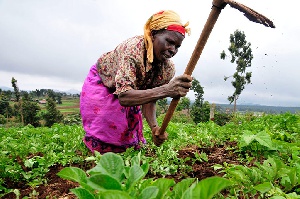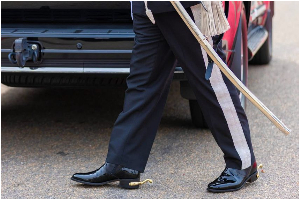A Deputy Director of Agric Extension at the Ministry of Agriculture, Justice Amoah, has said that the basic reason his outfit is unable to reach farmers with best agronomic practices is the lack of funding.
“Basically, the problem with extension is funding; we do not have adequate funding to enable our extension officers to go to the field, coupled with the low extension-farmer ratio,” he told the B&FT.
Over 80% of agricultural produce is said to be produced by smallholder farmers, most of whom are not formally educated. Reaching them with education and technology is therefore seen as a major factor in boosting their productivity.
For over a decade, the country has put in place an Agric Extension Policy, under which extension officers are deployed to various farming communities to educate farmers on appropriate agronomic practices.
Recent research suggests, however, that the ratio of extension officers to the number of farmers is woefully inadequate. Currently, there is only one Agricultural Extension Agent to about 1,300 farmers in the country. The situation is said to be even worse for some districts of the Brong Ahafo and Northern Regions, where one Extension Agent is deployed to offer services to over three thousand farmers.
The situation is a far cry from the global standard ratio of 1:200.
The Peasant Farmers Association of Ghana has been agitating for government to pay attention to the situation, calling for the training of more extension officers to be deployed to farming areas.
But the government says it is now promoting electronic extension, whereby farmers will be educated through mobile phones.
“Some of the measures we want to introduce include electronic extension, farmer-to-farmer and group extension -- so that if, for instance, a farmer is taught a technology, he can in turn teach his colleague farmers; this is even more effective because if a farmer sees his colleague use a technology successfully, he will copy it more than when we the extension people teach him,” said Justice Amoah.
Victoria Adongo, Programmes Coordinator of the Peasant Farmers Association, however told the B&FT that: “We like the e-extension, it is good. But what kind of e-extension is it? Most of our farmers cannot send text messages; they cannot read text messages. So if they are going to do e-extension then it has to be something that our illiterate farmers can really use comfortably. We are not saying the e-extension should come and replace the direct human contact.”
Business News of Monday, 30 September 2013
Source: B&FT













